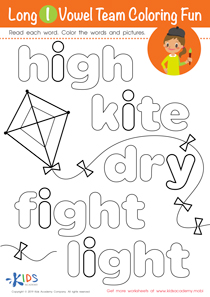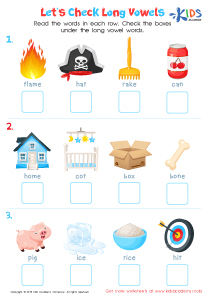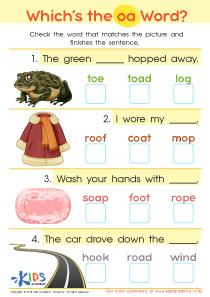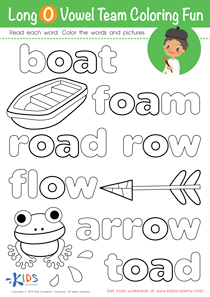Vowel Recognition Normal Grade 1 Short Vowels Worksheets
4 filtered results
-
From - To
Explore our engaging "Vowel Recognition Normal Grade 1 Short Vowels Worksheets" designed to support early literacy skills. These worksheets help young learners easily identify and practice short vowel sounds through fun activities. With colorful illustrations and interactive tasks, students will enhance their phonemic awareness while building a strong foundation in reading. Each worksheet is tailored to make learning enjoyable, ensuring that children grasp the importance of vowels in words. Ideal for classroom use or at-home practice, these resources promote skill development while keeping learning fun. Dive into our collection today and watch your child excel in vowel recognition!
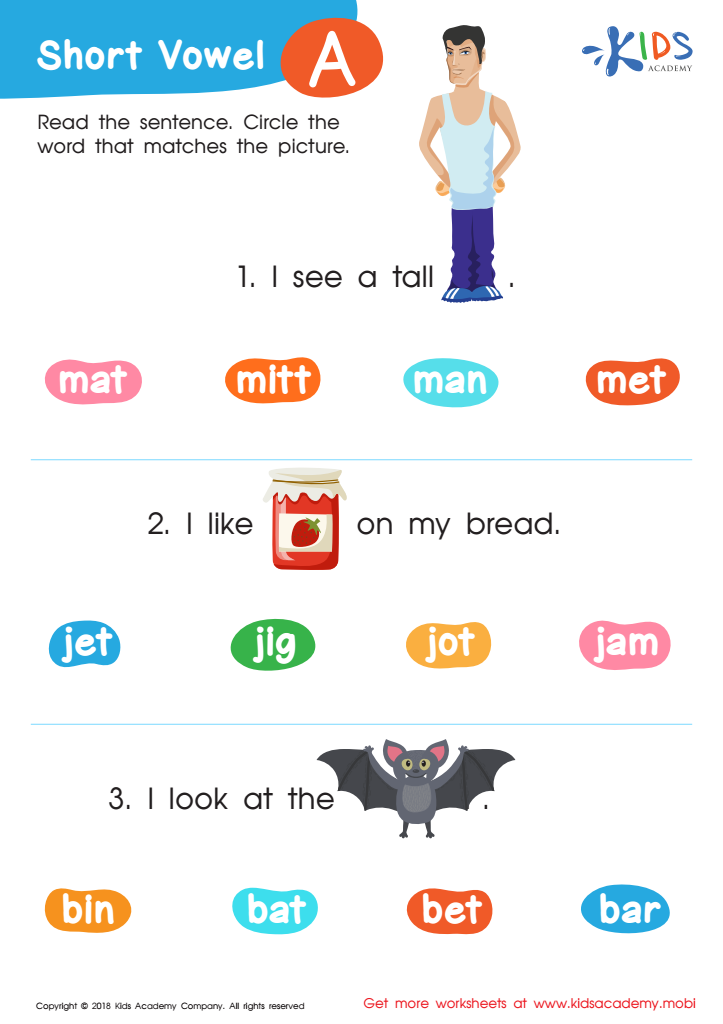

Short Vowel /a/ Worksheet


Short Vowels /e/, /i/, and /u/ Worksheet


Short Vowel Eggs Worksheet


Long and Short Vowel Sentences: Assessment Worksheet
Vowel recognition is a foundational skill in early literacy development, particularly for first-grade students. This crucial stage in learning to read and write involves mastering short vowels, which are fundamental to decoding words and constructing sentences. Understanding short vowels helps students enhance their phonemic awareness, enabling them to sound out words more fluently and accurately.
For parents and teachers, supporting vowel recognition paves the way for greater literacy proficiency. When children can identify and differentiate short vowels, they are better equipped to tackle more complex reading materials as they advance. This early proficiency fosters a love for reading, as children gain the confidence to explore books on their own, leading to improved vocabulary and comprehension skills.
Additionally, children who struggle with vowel recognition may face challenges in their overall academic performance and confidence. By nurturing this skill, parents and teachers create a strong literacy foundation, ensuring students do not fall behind. Engaging students through games, songs, or interactive activities centered on short vowels enhances retention and makes the learning process enjoyable. Ultimately, fostering vowel recognition in grade 1 is a vital investment in a child's educational journey, laying the groundwork for lifelong learning.

 Assign to My Students
Assign to My Students





